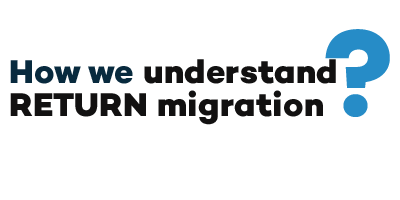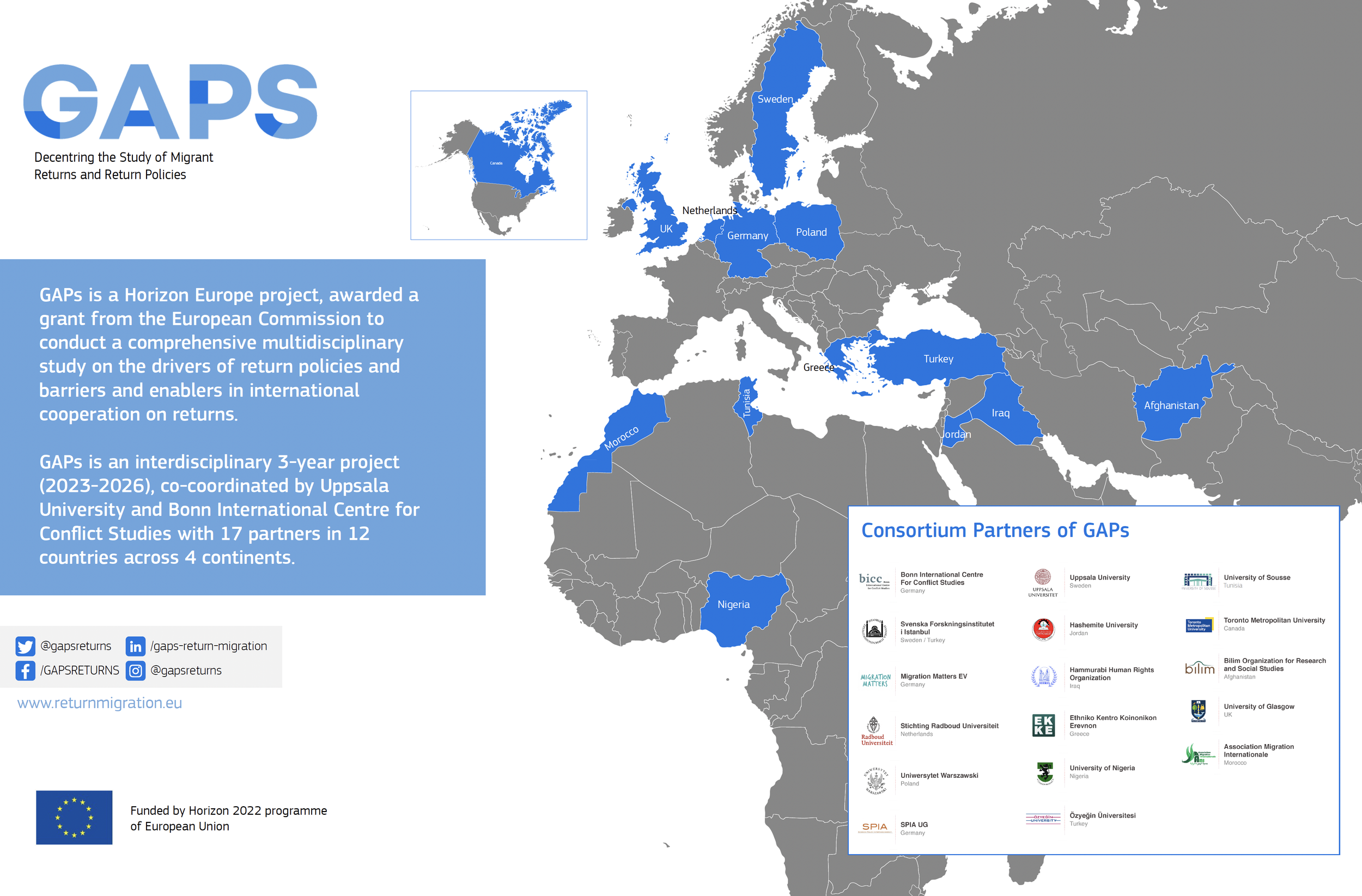Discover GAPS Project
The return policies implemented by the EU do not provide effective links between return and asylum policies and they lack policy harmonization among member states. Moreover, these policies overlook the perspectives, experiences, and concerns of migrants, leading to discrepancies between the priorities of return policies and the interests of all parties involved in migration processes.
GAPs aims to decentre the dominant, one-sided understanding of ‘return policymaking’ by bringing multiple perspectives into play and studying the complex interaction of diverse actors (including migrants themselves) involved in the return processes; scrutinizing gaps and shortcomings in the governance of returns, with both its internal and external dimensions; and devoting specific attention to the study of practices.
A short video gives a first insight into GAPs - the multidisciplinary Horizon Europe project that launched in March 2023 and runs until 2026.







